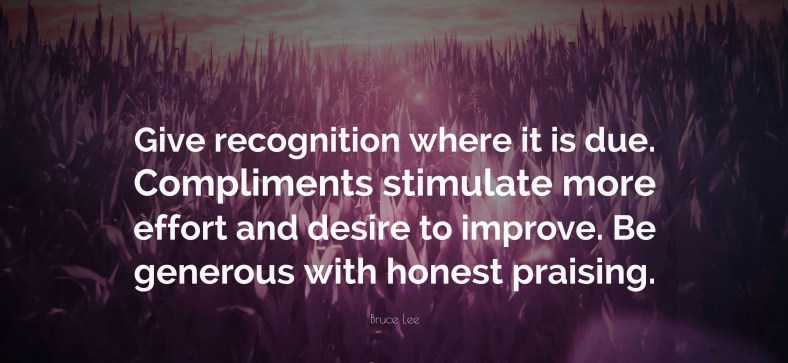
Have you ever received a compliment from someone and immediately wondered what they were up to? You may be thinking they want something in return. Maybe they are about to ask for a favor. You’re not at all certain the compliment is truly sincere.
Lots of people think they’re giving sincere compliments but a truly sincere compliment has two parts. The compliment itself and the “evidence” that proves it’s sincere. It’s easy to say “nice job” and walk away thinking you’ve just given a compliment. But explaining with some level of detail why you believe the person did a nice job requires some effort.
For instance, if they have just interacted with an upset and challenging customer and the customer ended up being pleased with the outcome it can be very tempting to say “nice work” and let it go at that. But consider adding something like, “nice work, that was very impressive the way you calmly interacted with a very upset person. It could have gone very differently but your caring demeanor really saved the day…and likely the customer. Again, very nice work.”
It’s a little more effort but it makes a very big difference. Specificity is the key. If you can’t be specific you’re leaving the door to doubt open in the mind of the person you’re complimenting.
Here are a few additional ideas to consider to make sure your compliments are received the way you intended.
• Be Genuine: Your sincerity should come from a place of authenticity. Avoid giving compliments just for the sake of it; mean what you say.
• Timing Matters: Choose an appropriate time to give a compliment. It could be in response to a specific action, achievement, or simply as a positive acknowledgment.
• Use Positive Language: Frame your compliment in positive language to convey your admiration. Avoid any negative comparisons or qualifiers. Instead of: “You’re not as bad as others at this, try your skills in this area really stand out.”
• Body Language: Non-verbal cues like eye contact and a genuine smile can enhance the sincerity of your compliment. Make sure your tone of voice aligns with your words.
• Avoid Backhanded Compliments: These are compliments that also contain an insult or criticism. They can be easily misinterpreted and may negate the positive intention. An example of a backhanded compliment might be “You’re surprisingly good at this.”
• Personalize the Compliment: Tailor your compliment to the individual and their unique qualities. This shows that you see and appreciate their individuality. Instead of: “You’re good at your job,” try “I’ve noticed your attention to detail in your work. It really sets you apart.”
• Be Mindful of Cultural Sensitivities: Understand the cultural context and be mindful of cultural differences when giving compliments, as what might be considered appropriate in one culture may not be in another.
The key to a sincere compliment is honesty and thoughtfulness. If you’ve ever given someone a compliment and they looked at you a little cross-eyed you may now know why. By acknowledging specific positive qualities or actions, you not only boost the recipient’s confidence but also strengthen your connection with them. It takes a little effort to turn a simple compliment into an undoubtably sincere compliment, but it’s way more than worth it.
 If you’re an Authentic Leader then you have accepted the responsibility of helping the people you lead reach their full potential. That’s an awesome responsibility!
If you’re an Authentic Leader then you have accepted the responsibility of helping the people you lead reach their full potential. That’s an awesome responsibility! When talking about giving compliments I suppose I have to get this part out of the way right up front. “This part” is the part about when to give a compliment. I also suppose we have to talk about what to compliment…and maybe what NOT to compliment.
When talking about giving compliments I suppose I have to get this part out of the way right up front. “This part” is the part about when to give a compliment. I also suppose we have to talk about what to compliment…and maybe what NOT to compliment.


 I’m sure your people know what they’re doing. The question is: do your people know that what they are doing matters? Do they know that they do important work? Do they know that they are valued?
I’m sure your people know what they’re doing. The question is: do your people know that what they are doing matters? Do they know that they do important work? Do they know that they are valued?